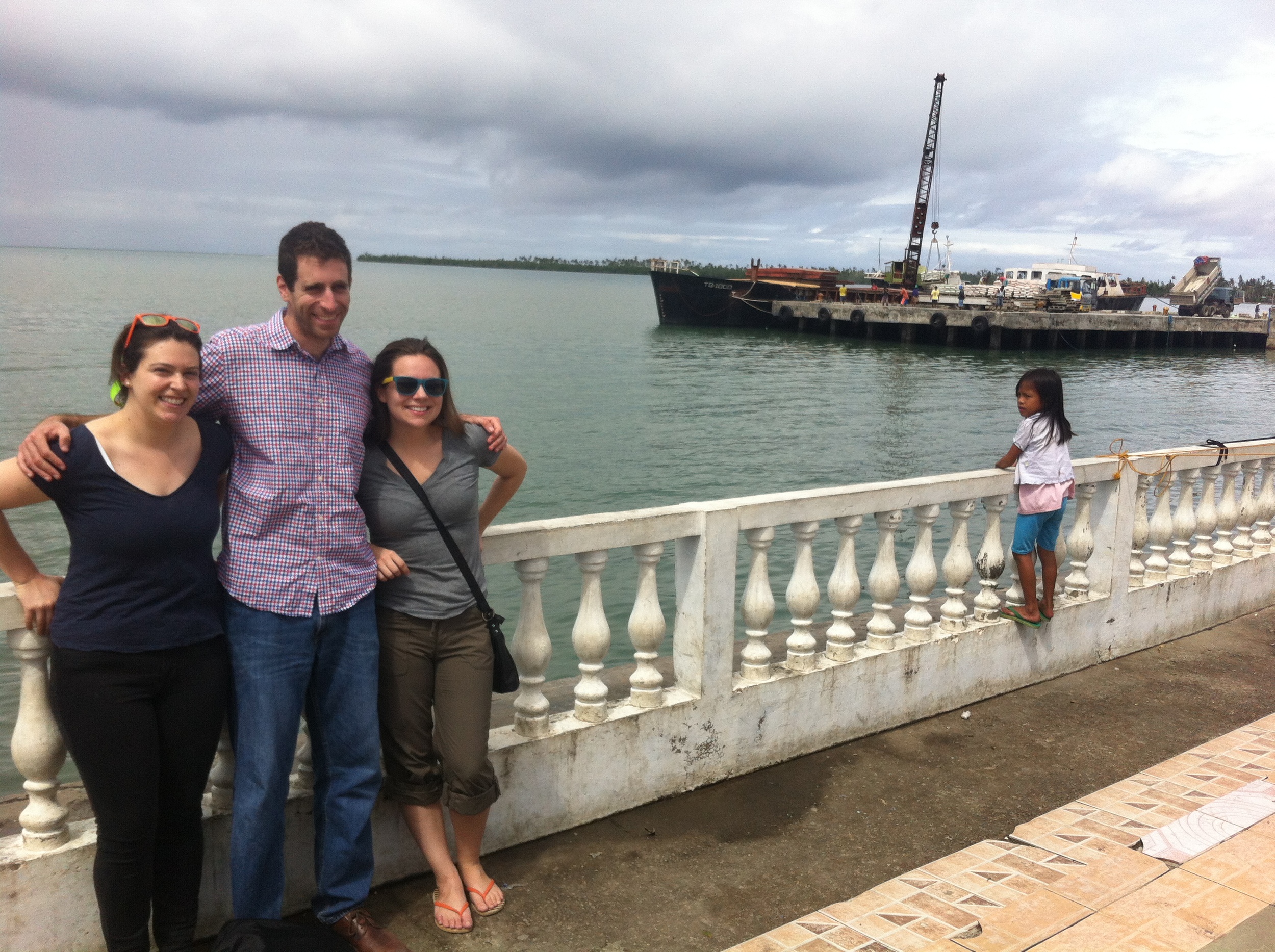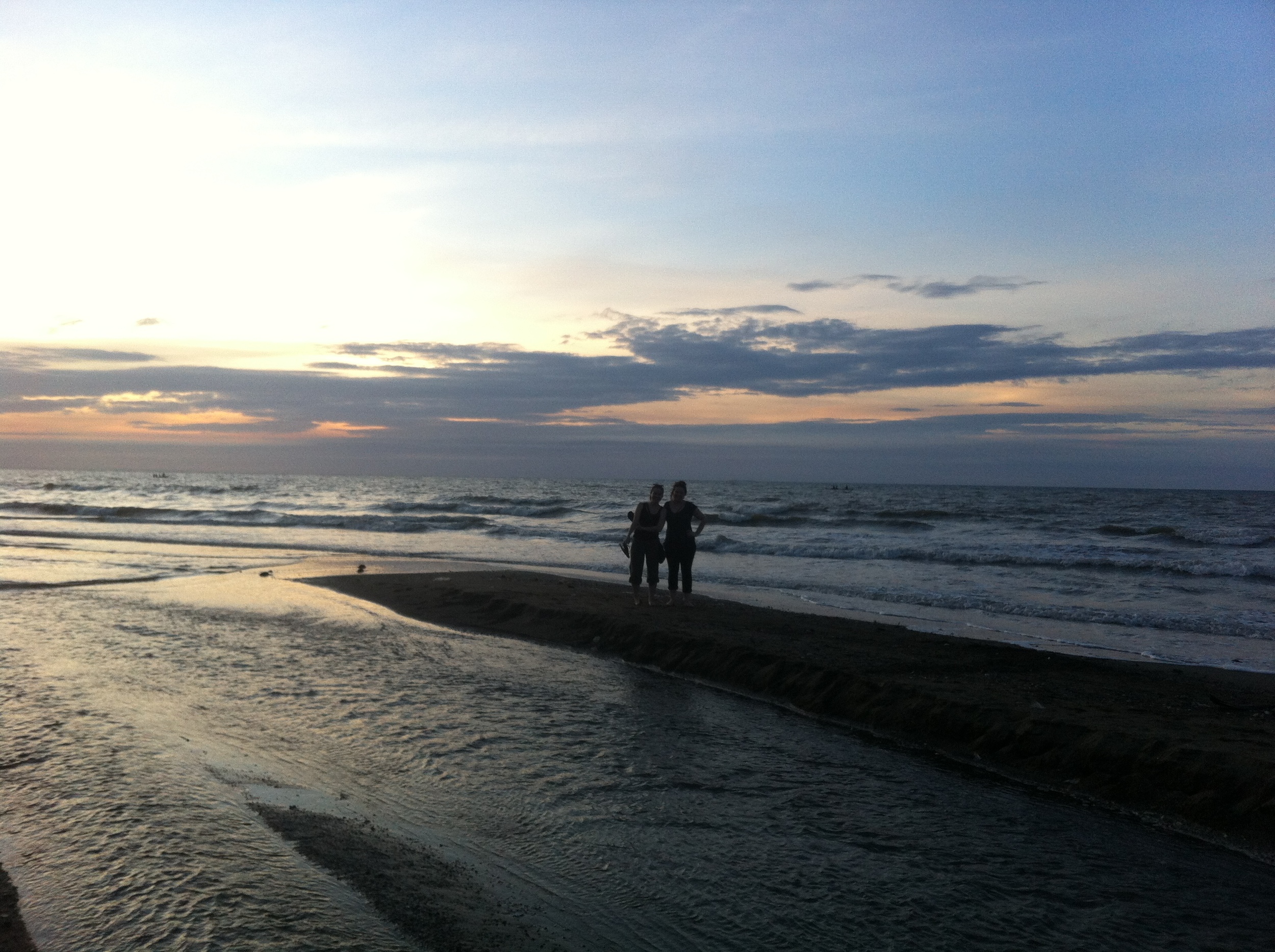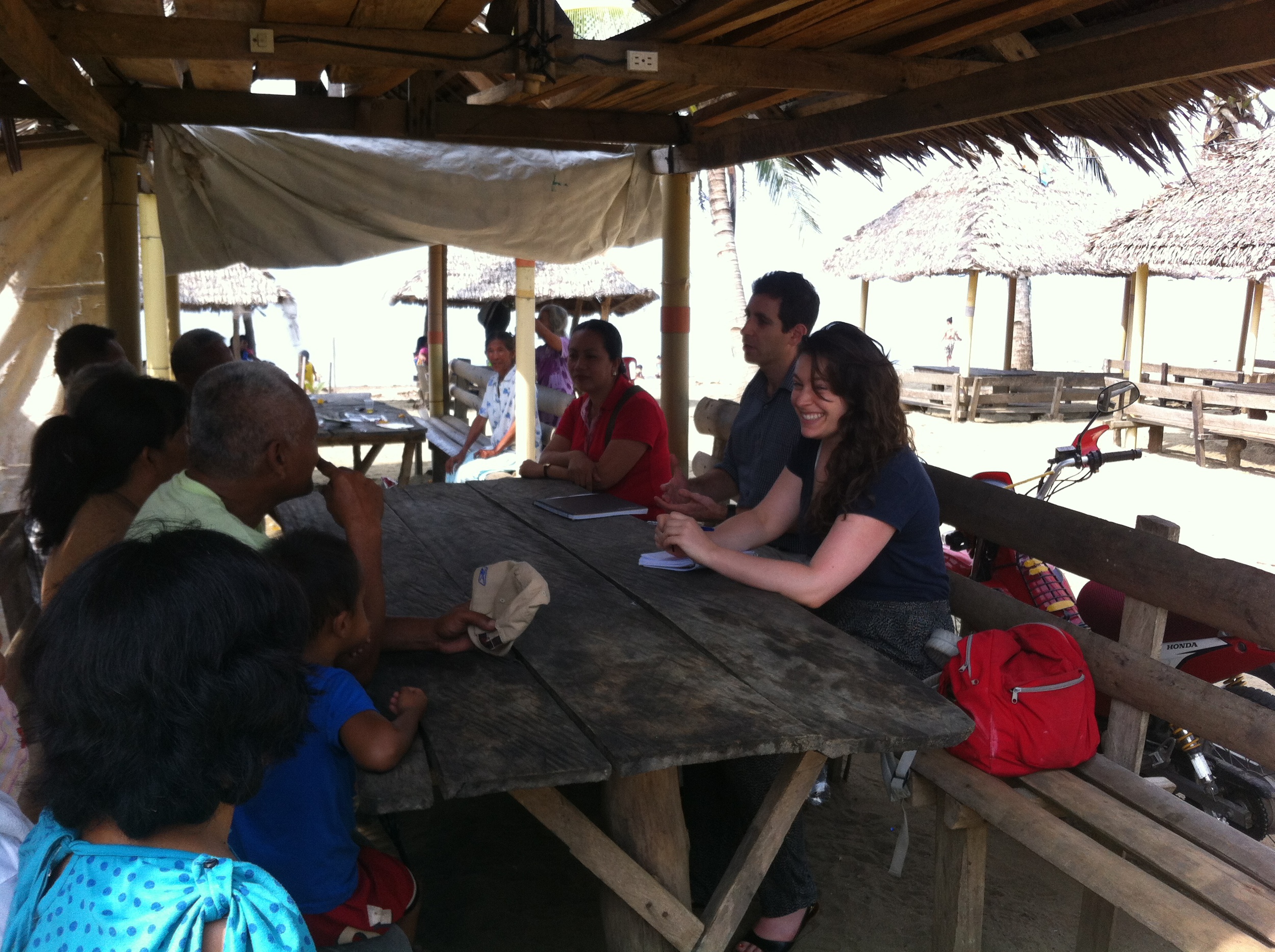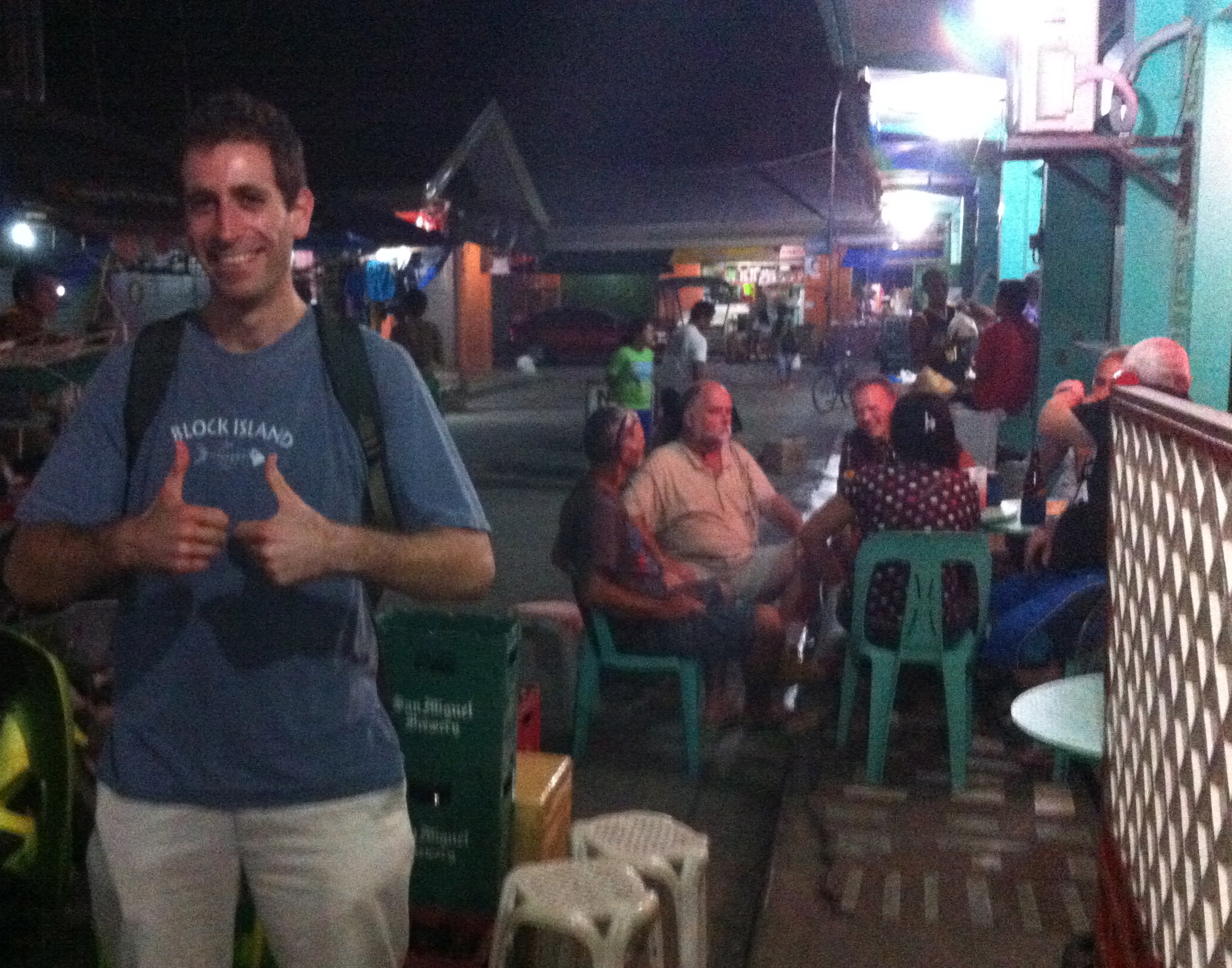BY GRACE HARTER, MEREDITH KUMMINGS, JOANNA VAN ASSELT & DAN HUDNER
The IDEV Practicum Blog is a six part series that chronicles the adventures of second-year IDEV students who take on client projects over winter break as a capstone to their graduate studies.
Our practicum team traveled to Leyte, an island in the Eastern Visaya chain of the Philippines, over the January break to perform a qualitative assessment of people’s resilience to natural disaster as part of a project for Mercy Corps. Mercy Corps is an international development organization that works to help people following conflicts, natural disasters, and other crisis situations. Part of the Mercy Corps mission is to evaluate what factors go into resilience to these storms so that the organization can better direct its programming to serve the needs of its beneficiaries. For Mercy Corps, resilience is defined as the capacity of communities in complex socio-ecological systems to learn, cope, adapt, and transform in the face of shocks and stresses.
The Eastern Visaya chain of islands, and Leyte in particular, is prone to super-typhoons, which are equivalent to category five tropical storms. A year and a half ago one of the strongest typhoons on record, Typhoon Yolanda, devastated the region. Finding the determinants of resilience and recovery from natural disasters like Typhoon Yolanda is imperative because some experts believe that these storms will become more frequent with climate change.
Prior to departing for the Philippines our group identified four factors that we believed would affect resilience to natural disaster: livelihoods, financial inclusion, gender, and social capital. We designed a series of qualitative and quantitative tools to be used for data collection in the field. Mercy Corps integrated the quantitative tool into a separate impact evaluation. We carried out the qualitative components of the assessment, such as the focus group discussions and interviews. Once in Leyte, we conducted group interviews with community members, local association members, and local savings group participants.
Now that we are back in DC, it’s time to sort through the dozens of interviews we did to identify themes and patterns for our report. We are currently working on evaluating both the qualitative and quantitative data, and some of our initial findings have surprised us. For instance, when researching social capital, we found that social capital within communities was surprisingly weak. Many people stated that they neither gave help to nor received help from their neighbors before or after the typhoon. Top-down social capital, however, was very strong, in that almost everyone received aid from both the governments and international non-government organizations (INGOs). This can partially be explained by the sheer lack of ability of people to help after the typhoon, as well as the heavily aid-dependent culture of the Philippines.
We also found that financial inclusion was high as people had access to multiple sources of loans, savings, and capital. There were many cooperatives that provided services for those hoping to start their own businesses, or for those who needed help recovering from the storm. The quality of these cooperatives varied vastly, however, and their true impact on resilience is still unclear. As the semester goes on, we are continuing to evaluate the data. Right now, our focus is data cleaning and running regressions on the quantitative data available to us. Soon we will put together our qualitative and quantitative findings for the research piece we will give to Mercy Corps.
Carrying out fieldwork in the Philippines—after leaving a freezing Washington, DC—was a fun and productive adventure. We gained some invaluable time with people on the ground, and they were all open to our questions and extremely valuable to our report. The temperature never dipped below eighty degrees, and there were all sorts of great street food, ranging from purple ice cream to fertilized chicken eggs—yum! As part of the adventure, we also dealt with (and survived) food poisoning, amoebas, typhoons, and broken down cars. But the field staff in the Philippines was fantastic and performed logistical operations perfectly—a real feat when there was both a category one typhoon and the pope’s visit on the same weekend.
ABOUT THE AUTHORS
Dan Hudner is focusing his studies at SAIS on program evaluation, with an emphasis on quantitative assessment. He graduated from Brown University in 2008 with a Bachelor of Arts in economics, and afterwards served as an advisor to small businesses in Morocco with the Peace Corps. He has also managed economic development grants with the US African Development Agency. Dan is particularly interested in evidence-based project design and innovation in data collection tools.
Grace Harter is studying international economics and international development at SAIS. After graduating from Washington College with a Bachelor of Arts in international studies, she served in the Peace Corps in Ukraine. As a Peace Corps volunteer, she worked in community development and managed a series of small USAID and PEPFAR grants. This past summer she worked on program evaluation for a technology NGO in northern Uganda and hopes to continue evaluation work in the future.
Joanna Van Asselt is currently studying international development and African studies at SAIS. She graduated from American University with a Bachelor of Arts in environmental science and international relations. After graduating, she worked in Washington, DC for an NGO, as a financial literacy program manager. Later she moved to Cotonou, Benin where she worked for Partners for Development, as a micro-finance program assistant. This past summer she worked at the World Bank in Abidjan, Cote d'Ivoire, co-writing an economic update that analyzes the main determinants of growth in Cote d’Ivoire since 2000.
Meredith Kummings is studying international development and international economics at SAIS. She is a graduate of Bates College with a Bachelor of Arts in political science. Following graduation she served as a Peace Corps volunteer in Honduras, where she worked closely with local government and rural women's groups. Later she worked as a project coordinator at a USAID contractor, where she managed evaluation teams in the field. This past summer she worked on mobile technology research for an inclusive finance NGO in Bogota, Colombia.





